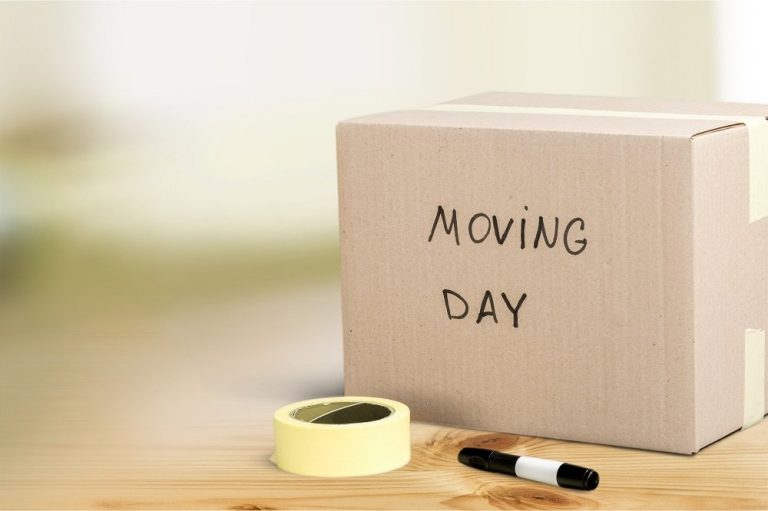Moving to a new home is a significant life event, one that often involves a great deal of excitement, stress, and, of course, expenses. Whether you’re relocating across the country or just a few blocks away, the costs associated with moving—packing supplies, moving company fees, fuel for the truck, and perhaps even temporary storage—can add up quickly. However, with the right approach, it’s possible to streamline the entire process and cut costs without sacrificing efficiency or peace of mind.
One of the most effective ways to reduce moving expenses is by employing the power of organization. By planning ahead and staying organized throughout the moving process, you can avoid unnecessary purchases, minimize time spent packing, and ensure that everything runs smoothly. In this article, we’ll explore several cost-saving secrets that can make a world of difference when it comes to organizing your move.
1. Start Early and Plan Ahead
One of the most common mistakes people make when moving is waiting until the last minute to begin organizing. The earlier you start planning, the more control you have over your budget. Procrastination often leads to rushed decisions and last-minute purchases that can increase costs.
Starting early gives you ample time to find the best deals on moving supplies, book moving companies, and even enlist help from friends or family, all of which can save you money. You can also take this time to assess what you actually need to move, potentially saving money by not having to transport items that you no longer want or need.
A well-thought-out moving timeline is your best ally. Make a checklist of all the tasks that need to be completed and assign deadlines for each one. This will prevent you from scrambling at the last minute, avoiding additional expenses such as last-minute packing services or rushed storage rentals.
2. Declutter Before You Move
One of the most effective ways to save money on your move is to reduce the amount of stuff you’re transporting. Moving companies usually charge based on the weight or volume of your belongings, so the less you have to move, the less you’ll pay.
Before you start packing, take time to declutter your home. Sort through each room and make decisions about what items you want to keep, donate, sell, or throw away. Organizing a yard sale or listing items online can generate some extra cash, which can be put towards moving costs.
Not only does decluttering help you save money, but it also makes the entire moving process less stressful. The fewer items you need to pack and unpack, the easier it will be to settle into your new home.
3. Gather Free Packing Materials
Packing materials can be one of the most expensive aspects of moving, but there are plenty of ways to save on these costs. Instead of purchasing boxes and packing supplies from a moving company, consider sourcing them for free. Many stores, including grocery stores, liquor stores, and office supply shops, often have surplus boxes that they’re willing to give away.
You can also use everyday items you already have in your home to help with packing. Towels, blankets, and pillows make excellent padding for fragile items. Consider wrapping your fragile kitchenware in dish towels or using scarves and socks to wrap smaller breakables. This not only saves on packing paper and bubble wrap but also reduces the number of items you need to purchase.
Additionally, check online platforms like Facebook Marketplace, Craigslist, or local moving forums. Often, people who have recently moved are looking to offload their packing materials, offering them at no cost or for a small fee.
4. Pack Efficiently to Avoid Extra Charges
Packing efficiently doesn’t just make it easier to move; it can also reduce your costs. If you’re hiring professional movers, many companies will charge for the amount of time it takes to load and unload your items. By packing your boxes in a way that maximizes space, you’ll reduce the number of boxes and ensure that the movers can work as quickly as possible.
Invest some time in learning how to pack efficiently. For example, use the largest boxes for lightweight items like linens and pillows, and pack heavier items such as books in smaller boxes to avoid overloading them. Label each box clearly, indicating both the contents and the room it belongs to, so it’s easier for the movers to handle.
If you’re using a rental truck, make sure to pack the truck in a way that maximizes space, filling in gaps with smaller items. Not only will this help you avoid multiple trips, but it could also help you save money on the cost of a larger truck.
5. DIY Moving vs. Hiring Professionals
While professional movers are convenient, they come at a price. If you’re trying to save money, you may want to consider a DIY approach. Renting a moving truck and handling the packing and loading yourself can be much cheaper than hiring a full-service moving company. However, this option is only cost-effective if you’re able to dedicate the time and energy to it.
If you decide to go the DIY route, ask friends and family to help with the move. Offering to buy pizza or drinks after the move can be a small price to pay for the assistance. You could also look into hiring a labor-only moving service, which is usually cheaper than hiring a full-service moving company. These services will load and unload your truck but leave the driving to you.
On the other hand, if you have a lot of heavy furniture or a long distance to travel, hiring professionals may be the best option to avoid damage or injury. In this case, it’s essential to get quotes from multiple companies and compare prices to ensure you’re getting the best deal.
6. Consider Moving During Off-Peak Times
Moving during peak times, such as summer or the first and last days of the month, can significantly increase the cost of your move. Moving companies are often busiest during these times, and prices can spike accordingly.
If your moving dates are flexible, try to plan your move during off-peak times. For example, moving in the middle of the month or during the fall and winter can lead to discounts on both moving services and truck rentals. Additionally, since fewer people move during these times, you’ll have more flexibility when it comes to booking movers or renting a truck.
7. Take Advantage of Tax Deductions (If Applicable)
In some cases, moving expenses can be tax-deductible, especially if your move is work-related. If you’ve relocated for a new job and meet certain criteria, the IRS may allow you to deduct certain moving expenses, such as the cost of transportation, storage, and even packing materials.
While tax laws are always subject to change, it’s worth checking with a tax professional to see if any of your moving costs are deductible. Even if you don’t qualify for a deduction, understanding the potential tax benefits can help you plan your finances more effectively.
8. Get Multiple Quotes and Compare Prices
Finally, when hiring movers or renting a truck, always get multiple quotes. Don’t settle for the first price you receive. By comparing different companies and understanding the range of prices available, you’ll be better positioned to make an informed decision and choose the most cost-effective option.
If you’re working with a moving company, be sure to ask about any hidden fees or additional charges. Some companies may offer a low base rate but tack on extra charges for things like stairs, long carry distances, or last-minute booking. By being thorough in your research, you can avoid unpleasant surprises when the bill arrives.
Conclusion: Organization is Key to Saving Money on Your Move
Moving may never be a completely stress-free experience, but with a bit of organization and strategic planning, it’s possible to save money and make the process more manageable. By starting early, decluttering, gathering free packing materials, and using efficient packing methods, you can significantly reduce the costs of moving.
Incorporating these cost-saving strategies into your moving plan will not only help you stay on budget but also ensure a smoother, more organized transition to your new home. So, whether you’re moving down the street or across the country, remember that organization is the key to a cost-effective move. The more organized you are, the less you’ll spend—and the sooner you’ll be able to enjoy your new space without the burden of financial stress hanging over you.















